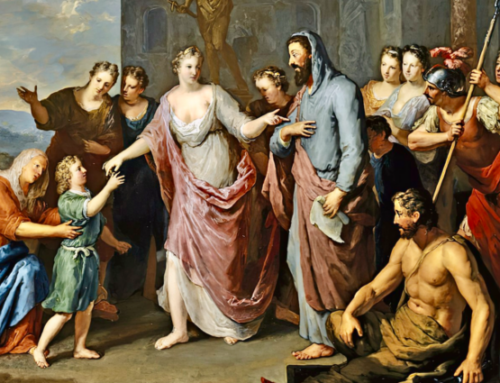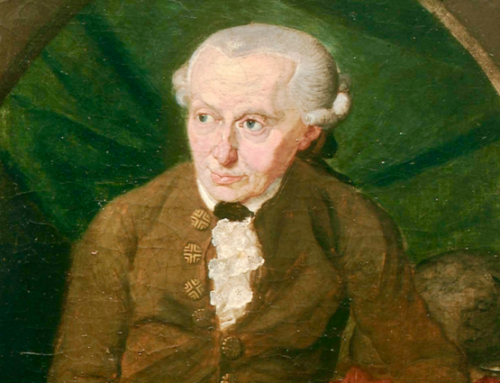Author’s Introduction: Imagine if Homer, Virgil, Dante, Chaucer, and the other great poets of ancient Greece, Rome, and the Middle Ages had been given the gift, not only to peer into the twenty-first century, but to correspond with us who live in that most confusing and rudderless of centuries. Had it been in their power to do both of those things, what might they say to us? How would they advise us to live our lives? What wisdom from their experience and from their timeless poems might they choose to pass down to us?
Horace: On Hedonism
You must understand that Virgil and I are friends, good friends. He is, to me, the epitome of the poet and the noblest Roman of them all. But he really needs to lighten up. His Aeneid is the greatest poem ever conceived and written, but it does get dreary, and it does go on forever.
I mean, I love pietas just as much as the next Roman, but we can’t always be doing our duty with the single-minded focus of Aeneas. Certainly we must worship Jupiter and Juno and Mars and Minerva, but let us not forget Venus and Bacchus and Mercury. And Pan makes much better company than Vesta on a Friday night.
Am I a hedonist, you ask. Well, yes and no. Pleasure is a good thing, but only in the proper time and place and with due allowance for prudence and moderation. I reject, along with Aeneas, the drunken revelry of the barbaric east that so turned the head and heart of our once noble Marc Antony. Such a life leads only to pain and dissolution.
Seek rather, citizens of the future, a kind of intoxication that takes away care, not drowns it out, that enhances life, not empties it of its will and vigor. The true secret to happiness, my friends, rests on small pleasures. Seek not poverty or vast wealth, but a middle course that brings peace and contentment. Dame Poverty is often a better companion than fickle Fortune, and loyal friends a better refuge than hoarded wealth.
Live now, in the moment, not recklessly, but seizing hold of the flower that lies in your path, drinking from the cup that’s close at hand, taking joy in the love that is offered you. Do not seek to bend the world to your lusts, but adjust your desires to fit the world that you inhabit.
#
Thus it was in the Golden Age of the Republic. Back then, in those blessed days, people’s wants and desires were less and they took joy in the pastoral pleasures that the countryside had to offer. The debauched, over-refined pleasures of Rome had not yet taken hold of the people, and the evils of civil war had yet to ravage the land.
Know this, you who lust after foreign goods and exotic wares, that it was an evil day when men first built ships and went in search of such costly items of trade. The gods were wise to separate us from the barbarian lands of the east by vast stretches of sea and ocean. Alas, in our greed and restless folly, we shattered those watery limits, subjecting ourselves to natural storms at sea and unnatural desires for needless luxuries at home.
I say it to you again, my friends: do not hoard your wealth but take pleasures as they come to you, freely and in their season. The rich and mighty are burdened with cares and take little joy from their wealth and power. Why pile up possessions that will only pass down to your children when you are dead? For be assured of this: no one, rich or poor, emperor or slave, soldier or farmer, can escape death. Death is the great leveler; it seizes all and from its grip none can escape.
#
Let me share with you something that happened to me many years ago. While I was out in the orchards, a tree branch fell and almost crushed me to death. To this day I curse that tree, convinced that it was planted by an evil man in an evil hour.
But I learned a great deal from my close encounter with Charon, that silent, shadowy boatman who ferries our souls into the underworld. Even in Arcadia, even in the pastoral world of peace and contentment that I have found on my Sabine farm, death is a continual presence. No longer shall I put myself at risk for empty glory or the acquisition of riches. I shall stay in the small world that has been given to me by my beloved patron, Maecenas, and be grateful for the days that I have.
My friends, there is nothing finer than a simple supper under a modest roof. Compared to that, the beauty and wealth of Cleopatra are vain phantoms. I would not trade my Sabine farm for all the treasures of Egypt.
#
Yes, yes, I sense that many of you are smirking at me. You call me a hypocrite behind my back for the praise and support I have given to Maecenas my patron and Caesar Augustus my emperor. I understand your complaint. I myself have little patience for cronies who suck up to the rich to gain their favor. I despise, as you do, the man who would prostitute his honor and his talents to purchase a life of ease and pleasure.
A hedonist I may be, but I am a realist as well. I lived through those terrible civil wars. I fought alongside Brutus at Philippi and experienced the death throes of the old Republic I so loved and still love. I should have died at Philippi, but Augustus forgave me and many of my friends whose true love was for Rome and not for regicide and rebellion.
Believe me, my friends, there can be no simple joys and pleasures without order and peace and stability. It was Augustus who brought us those things, who saved us all from the madness and lust of Antony and Cleopatra. As Jupiter rules the heavens, so Augustus rules the earth. Under that joint rule, there is unity: a true Pax Romana.
So Virgil is right after all! He always is, you know, even when he bores us. Without pietas, there can only be war and furor. It was not Augustus but the civil wars that killed the Republic; now the peace of Augustus is the only hope we have of recovering some of those old virtues that I have found again on my farm.
Apart from the Golden Mean of Aristotle, the hedonism of Bacchus and Venus grows sickly and devours its own fleeting joys.
—Horace
The Imaginative Conservative applies the principle of appreciation to the discussion of culture and politics as we approach dialogue with magnanimity rather than with mere civility. Will you help us remain a refreshing oasis in the increasingly contentious arena of modern discourse? Please consider donating now.
Editor’s Note: The featured image is “The Romans of the Decadence” (1847) by Thomas Couture (1815-1879), courtesy of Wikimedia Commons.








A wonderful tour de force!